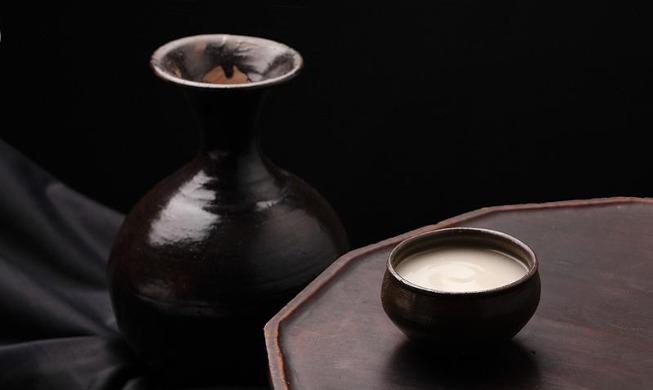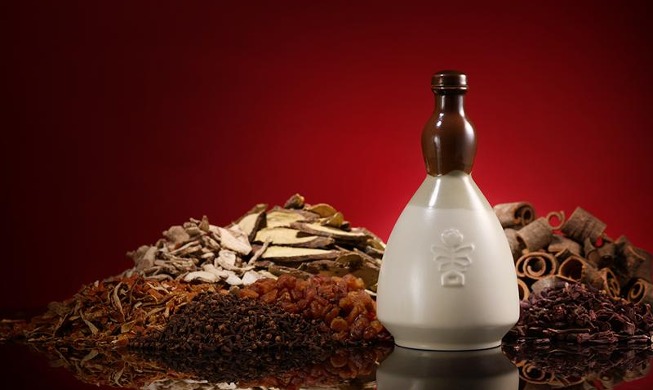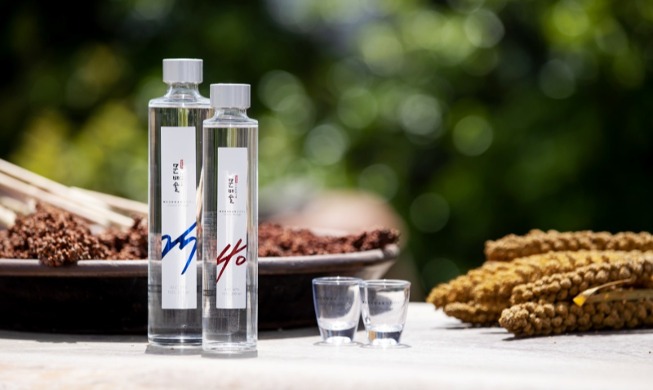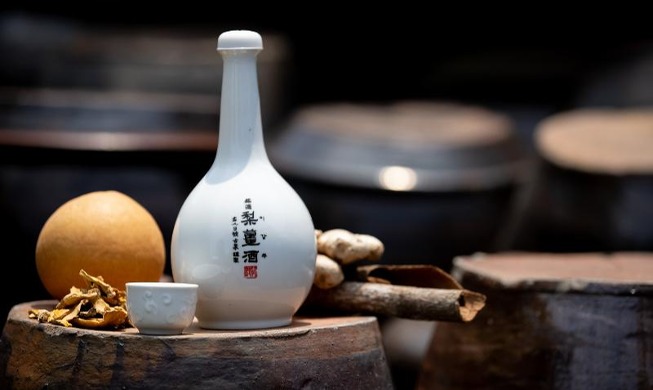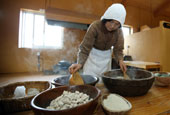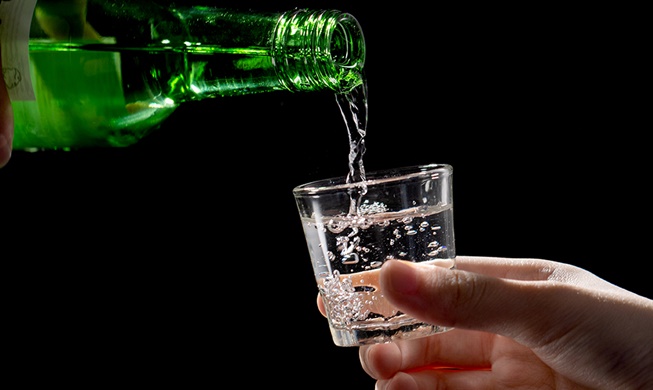
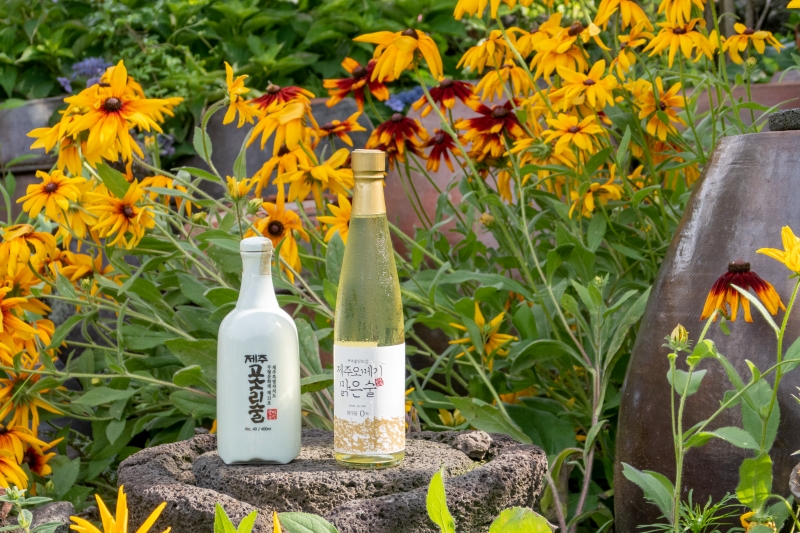
Jeju Omegi Malgeunsul is a traditional liquor on Jeju Island that won the top prize in the yakju and cheongju category in the Korea Wine & Spirits Awards in 2017 and last year.
By Min Yea-Ji
Photos = Min Yea-Ji
Jeju Island
When entering a black basalt fence exclusive to Jeju Island, a unique atmosphere welcomes visitors with traditional Jeju one-story houses covered by trees from the outside. The right of the gate has traditional jars, sojutgori (distiller) and a furnace while next to the homes is a garden with fresh greenery that creates a pleasant exclamation.
This is Jeju Island Brewery (JIB) in the island's village of Seongeup-ri in Pyoseon-myeon Township of Seogwipo, where four generations of brewers have made traditional alcoholic beverages of the island.
JIB CEO Kim Hee-sook said, "We've been brewing traditional alcoholic beverages of Jeju Island at the home where my mother used to live and in ways dating back to the era of Tamnaguk (the island's ancient name during the Three Kingdoms era on the Korean Peninsula)."
The exterior of the brewery is beautiful. Since it has no mass production facility or factory, the house has retained its traditional charm. For her devotion and contributions to preserve and pass down gosorisul, Intangible Cultural Asset No. 11 of Jeju, Kim in 2018 was designated a culinary master of alcoholic beverages.
Starting her day at 3 a.m., the most silent time of the day when everyone is sleeping, she brews the beverage with every nerve alert as if only she and the brewing sound exist in the world.
"I can't brew the liquor properly when my mind is busy and people come and go here," she said. "When it's quiet or cool or when I start a new day, I must pay attention to this and do it properly."
Brewed here are Omegi Malgeunsul, or traditional Jeju liquor categorized as yakju under liquor tax law, and gosorisul, traditional soju of the island. The word omegi is Jeju dialect for millet and gosori refers to sojutgori.
Since the barren island had no soil for rice farming, residents grew millet. Alcoholic beverages were also brewed with millet instead of rice.
First, the residents made omegitteok, a doorknob-shaped cake made with millet. Then they produced hardboiled millet and barley rice to use as an ingredient for the millet liquor. Fermentation of 15-20 days is needed for the drink to mature. When it is properly ripe, clear liquor comes to the top and is removed to further mature and become Omegi Malgeunsul.
Omegi Malgeunsul is eye-catching thanks to its golden color harmonized with yellow green. The characteristic of this millet fermented liquor is good acidity level.
With alcohol by volume of 16%, this liquor has received kudos for its fresh and sweet fruity flavor. In 2019, it was the alcoholic beverage served at a banquet for the Korea-Chile summit. In 2017 and last year, it received the top prize in the yakju and cheongju category of the Korea Wine & Spirits Awards.
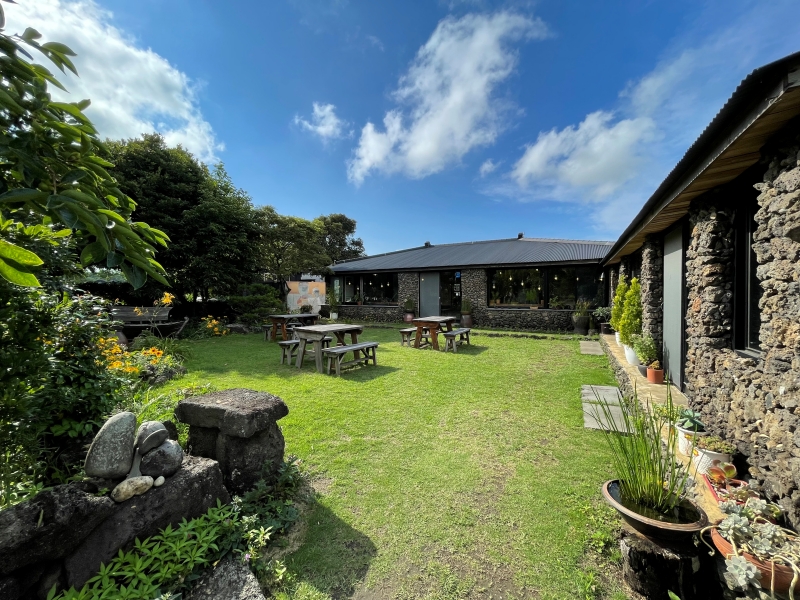
Jeju Island Brewery, surrounded by nature and greenery, is where alcoholic beverages are brewed under traditional methods and using just nuruk (fermentation starter), grains and nothing else.
If takju (cloudy alcohol) like makgeolli (rice wine) was considered a rice staple that quenched the thirst of laypeople who mostly worked on farms, cheongju was used in ancestral rites like jesa or charye as booze offered to ancestors. The word cheongju means the drink contains a clean, fresh and beautiful aroma that can reach one's ancestors in heaven. For this reason, people poor or rich made clear alcoholic beverages with glutinous or newly harvested rice for ancestral rites or traditional holidays.
If the charm of takju is gulping the drink in a wide-mouthed cup, that of cheongju lies in sipping it slowly from a small cup because of its clean and fragrant nature.
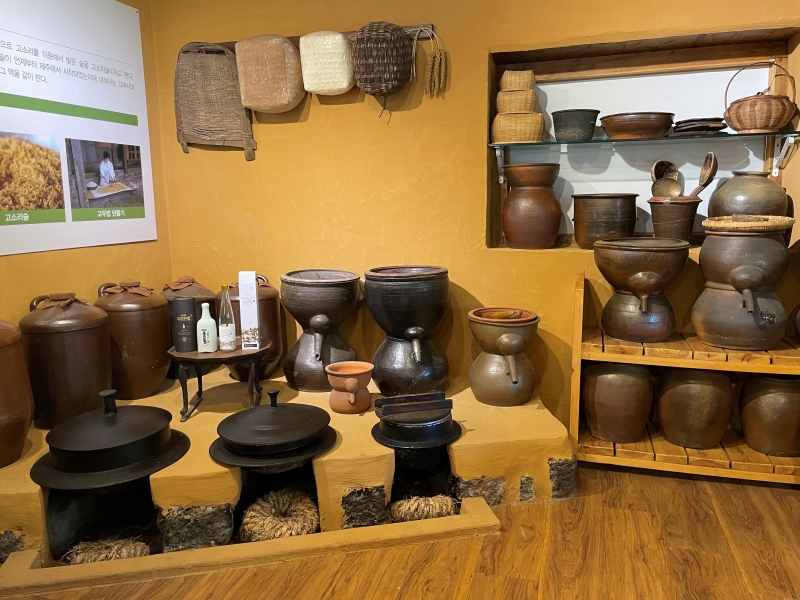
The interior of Jeju Island Brewery.
Jeju suffered many natural disasters such as typhoons and its residents strongly relied on folk religion. A saying goes that "(The island has) 500 shrines and 500 Buddhist temples." To perform jesa (ancestral rites), mothers usually brewed the alcoholic beverages needed.
Jeju gosorisul is also dubbed mohyangju, which literally means "liquor of mother's scent." Another name is samoju, which means "thinking of mother." Consuming gosorisul gives the drinker the impression of seeing his or her mother brewing the drink all night long and feeling the stories of mothers who lived diligently and joyfully in this barren land despite poverty.
"This traditional alcoholic beverage has ingredients and stories customized for a region," Kim said.
“I hope tourists consider enjoying the island's traditional millet and barley liquor as part of their tour when they visit Jeju Island," she added. "If you experience alcohol that reflect the sorrow and footprints accumulated over many years, you will feel Korea's unique spirit and cultural heritage."
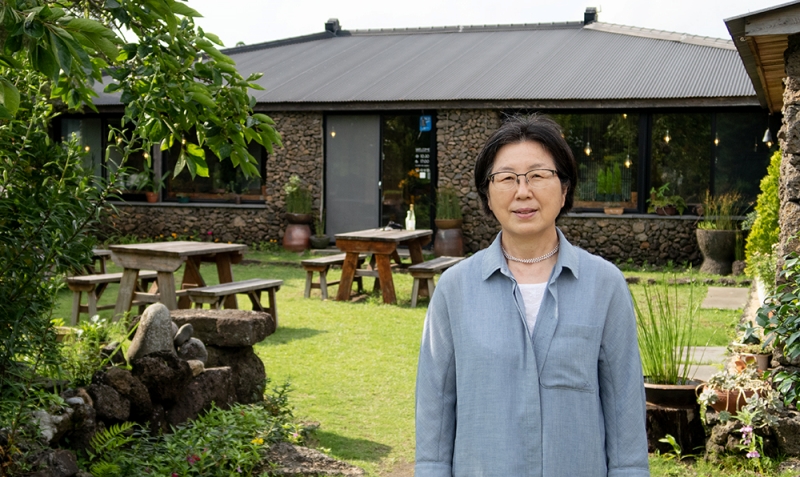
Kim Hee-sook is the CEO of Jeju Island Brewery and a culinary master in alcoholic beverages.
This traditional drink has a painful history because it lost its name during Japanese colonial rule due to Japan's policy to remove traditional Korean culture. Seishu, or Japanese-style cheongju, means cheongju in Japanese and uses the same Hanja (traditional Chinese characters). To differentiate the two, Japan in 1916 proclaimed a liquor tax decree and categorized only seishu as cheongju. Alcoholic beverages made through traditional Korean methods were classified as yakju.
Traces of liquor tax law enacted by the Japanese colonial government remain in Korea. According to the law, cheongju is defined as an alcoholic beverage made of under 1% rice. To make cheongju, 10% must be nuruk, or a fermentation starter. If 10% of ipguk, or nuruk modified in a Japanese style, is used for the liquor, the classification remains cheongju because ipguk is not deemed as nuruk under the law. Yet traditional Korean cheongju is classified as yakju, forcing people to call only Japanese liquor cheongju. For example, Omegi Malgeunsul, whose name means "clean liquor," is classified yakju under the law. For this reason, voices are urging revision of the law for Korean alcohol to regain its original name cheongju.
